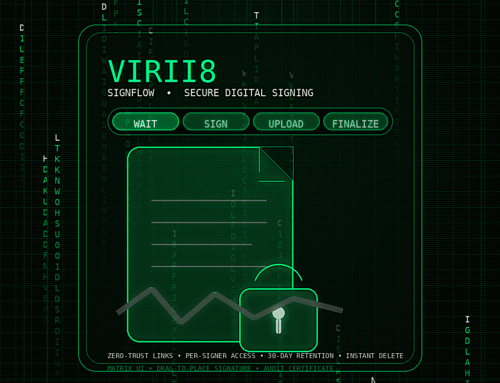
Approx. read time: 5.5 min.
Post: What Will Iran’s October 7-Level Cyberattack on Israel Look Like?
Iran’s cyberattack on Israel: What Will Iran’s October 7-Level Cyberattack on Israel Look Like?
Since the onset of hostilities, Israel has witnessed a surge in cyberattacks, experiencing an intensity thrice as high as before, affecting an expanded range of sectors. Gaby Portnoy, the Chief of Israel National Cyber Directorate, shed light on the potential scale and impact of an anticipated Iranian mega-cyberattack during the Cybertech Conference in Tel Aviv.
Portnoy highlighted that since October 7, Tehran, alongside Hezbollah, has escalated their cyber offensive against Israel, marking a significant increase in the frequency of attacks. This coordinated effort aims to penetrate sectors previously untouched by their cyber campaigns.
The trigger for this intensified cyber aggression was a directive from the Supreme Leader Ali Khamenei, following successful efforts by Hamas Gaza chiefs to compromise the physical security of Israelis. This directive catalyzed around-the-clock cyberattacks from Iran and Hezbollah against Israeli targets.
Hezbollah: A Multifaceted Organization at the Intersection of Regional Politics and Global Perceptions
Hezbollah, established in 1985 in Lebanon, emerged as a response to Israel’s invasion, with Sayyed Hassan Nasrallah at its helm. It is rooted in Islamic nationalism and opposes Western influence, gaining momentum as a Shia movement. Hezbollah is multifaceted, engaging in Lebanese politics with parliamentary representation and maintaining a significant military wing, the Jihad Council. It has also developed a vast network of social services, including healthcare and education, primarily in Shia areas, bolstering local support.
The organization’s close relationship with Iran is pivotal, receiving substantial financial and military backing, which significantly influences its strategic direction. Hezbollah’s political involvement within Lebanon is intricate, marked by alliances that extend its influence across state policies.
Hezbollah has been implicated in international incidents, such as the AMIA bombing in Argentina, and is accused of engaging in drug trafficking to fund its operations. These controversial activities contribute to its designation as a terrorist organization by some countries, while others draw a distinction between its military and political wings, reflecting the global debate over its legitimacy and role.
This nuanced view of Hezbollah highlights its complex role in regional politics, its socio-political impact within Lebanon, and the international discourse surrounding its actions and designation.
Unprecedented Increase in Cyberattack Intensity: Iran’s cyberattack on Israel
The scale of these cyberattacks is unprecedented, with every sector within Israel now a target. The collaboration between Iran and Hezbollah has notably intensified, culminating in a significant cyber assault on the Ziv Hospital in Safed. This attack, led by Iran’s Intelligence Ministry, aimed not only to disrupt hospital operations but also to undermine Israel’s resilience amidst war.
The identification of the hacker group AGRIUS, linked to the Iranian Intelligence Ministry and leveraging Lebanese Cedar—a group associated with Hezbollah—underscores the sophisticated nature of these threats. Despite the partial success of the Ziv Medical Center hack, where attackers accessed sensitive patient information, the hospital’s critical operations remained uncompromised thanks to the efforts of the INCD.
Broader Implications and International Perspectives: Iran’s cyberattack on Israel
The implications of these cyberattacks extend beyond Israel. Claudia Plattner, President of the German Federal Office for Information Security, disclosed that Germany faced losses amounting to €206 billion due to cyberattacks in 2023, signaling a broader global cybersecurity crisis.
These cyber threats are not confined to data breaches but also encompass disinformation campaigns aimed at disrupting democratic processes in countries like Germany, the EU, and the US. This calls for a fundamental shift in cybersecurity strategies, emphasizing the importance of educating the public on securing their digital footprint.
Preparing for Future Cyber Threats
As the world transitions to a digital era dominated by cyber and artificial intelligence capabilities, the narrative shared by former Unit 8200 chief, Nadav Zafrir, is poignant. Zafrir warns of the shift towards “Extremistan,” where unusual and extreme events become the norm, highlighting the urgent need for innovative cybersecurity measures.
The escalation of cyber threats, as evidenced by the orchestrated attacks on Israel, underscores a crucial turning point in global cybersecurity. It’s a stark reminder of the evolving nature of cyber warfare and the imperative for nations to bolster their defenses against these invisible yet impactful threats.
Iran’s Escalation in Cyber Warfare Against Israel
Israel has experienced a significant rise in cyberattacks since the escalation of hostilities, with attacks now three times more frequent and targeting a broader range of sectors. Gaby Portnoy, Director of the Israel National Cyber Directorate, discussed the potential magnitude and consequences of a foreseen major cyberattack from Iran at the Cybertech Conference in Tel Aviv.
Portnoy pointed out an increase in cyber offensives from Iran and Hezbollah since October 7, aiming to infiltrate previously unaffected sectors. This surge follows a directive from Supreme Leader Ali Khamenei, inspired by Hamas’ breaches of Israeli security.
Unprecedented Cyberattack Intensity
The cooperation between Iran and Hezbollah has led to an unparalleled increase in cyberattack intensity against Israel, making every sector a potential target. The joint efforts have recently focused on significant cyber assaults, such as the attack on Ziv Hospital in Safed. Although this attack, orchestrated by Iran’s Intelligence Ministry, aimed to disrupt operations, critical services remained unaffected due to the Israel National Cyber Directorate’s interventions.
Wider Consequences and the Need for Enhanced Cybersecurity
The rise in cyberattacks signifies a global cybersecurity crisis, with countries outside Israel, like Germany, also reporting substantial economic losses. The threat landscape now includes disinformation campaigns aimed at undermining democratic processes, indicating the need for a shift in cybersecurity strategies and public education on digital safety.
Conclusion
The insights from cybersecurity officials and experts at the Cybertech Conference illuminate the sophisticated and coordinated nature of cyber threats emanating from Iran and its proxies. As cyberattacks become more prevalent and damaging, the global community must unite in developing and implementing robust cybersecurity strategies to safeguard against the digital warfare of the future.
‘Not Israel, Real Aim Of Hamas’ Oct 7 Attack Was…’: Iran’s Supreme Leader’s Explosive Revelation
Will An Iran-Israel War Break Out?
Related Videos:
Related Posts:
Iran Accused of Orchestrating Assassination Plot on U.S. Soil with Canadian Operatives
Global Tensions Rise: Iran’s Direct Attack on Israel and the International Repercussions
Israeli Military’s “No Comment” Response to Reports of Explosions in Iran
Bitcoin Price Predictions: Jamie Dimon’s ETF Impact
AI-Powered Banking: Amnon Shashua’s Digital Bank Revolutionizes Finance in Israel










